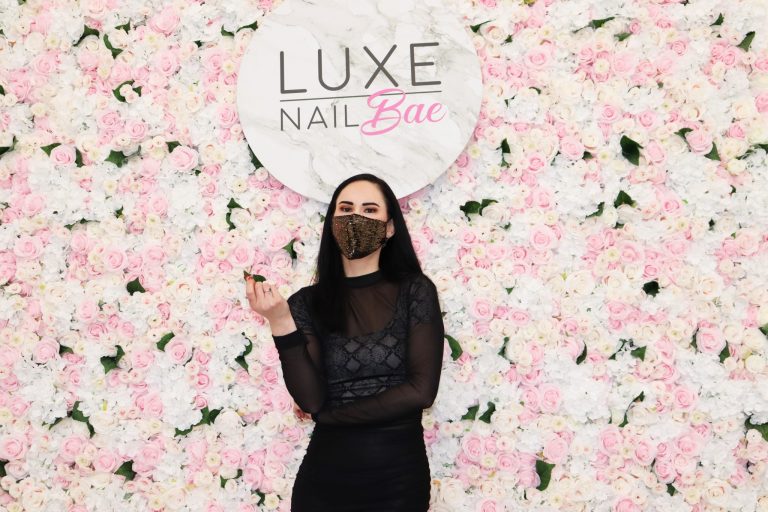The year 2020 saw a Zoom boom—a distinct boom in the cosmetic procedure industry that was brought on by the 2020 quarantine. People were isolated at home and, whether they were working from home, taking leaves of absence or laid off, there were many Ontarians that went into the pandemic with lots of alone time and extra cash to spend.
People also had more time to look at themselves, decide what to change and heal from any procedures they chose to undergo. The top five procedures were breast augmentation, liposuction, rhinoplasty, eyelid surgery and facelifts.
While people were isolated and staring at themselves for several hours a day on video calls, mirrors and laptop screens they experienced Zoom fatigue—another new term introduced to modern vernacular on account of the pandemic.
Zoom fatigue is a reputed, alleged mental condition caused by the artificial connection created through Zoom, doubled by the constant exposure to one’s own reflection while also using social media.
Social media is directly correlated to body image issues. Before social media, in the ‘heroine chic’ era, it was tabloids and television peddling emaciated bodies to impressionable youth. In each generation, a new beauty standard to live up to is born.
However, the post-2020 quarantine influx of cosmetic surgeries was not a sustainable market. Instead, when Ontario began opening up again for the first time, facial procedures came into front-view and the beauty industry, rocked by the pandemic, had to adapt to the new demand. New aesthetic clinics and spas are opening up across Kitchener and Waterloo, two cities already growing at an exponential rate.
“To be honest, places that are so-so…when you have high fixed costs, and you have to close for indiscriminate periods of time, it really screws up a business’ cash flow…but now things are changing where we’re literally going to be living online…brands and salons that will survive have few things going on,” Sumiko Lui, an entrepreneur, makeup artist and aesthetician, said.
Lui has worked in the beauty industry for over ten years now, starting by herself. Now Lui works with Luxe Spa in uptown Waterloo as the premier lash technician in Waterloo.
“A lot of salons have gotten by not because they’re the best, but because they’re close or available. But the world is changing now. People, [consumers], are becoming more savvy. I have clients who comb through every single review, and will actually follow a Google review to the commenter, to check if it’s real,” she said.
“There are certain industries, unfortunately, that will probably completely disappear. But certain things that human beings truly cannot do for themselves, I call them high touch experiences, can never be touched by technology. Because people still crave connection. Even, I would say, my most introverted client still needs to connect to other people,” Lui said.
Facial procedures are an umbrella term for a variety of services that permanently or partially restructure or alter a person’s profile. From lip blush to botox, there is a vast array of services to choose from.
“Niche markets are going to be the only way you survive. In modern aesthetics, no one is going to trust the lady who does your waxing, your eyelash extensions and your hair and your nails. Everybody is going to want to go to someone who does one maybe two things extremely well,” explained Lui.
Many of the new beauty-based businesses in Waterloo specialize in one particular service. Lui suggests that this is the new path for aestheticians. Rather than being a jack-of-all-trades, the market demands a targeted service with an aesthetician that is an expert.
During the 2020 lockdown and the shorter ones that followed throughout the last two years, there has been a noted spike in the psychological condition body dysmorphic disorder (BDD).
BDD, loosely defined, is a condition in which a person obsesses over a perceived flaw, however minor. You fixate, intensely, on this perceived flaw and attempt to fix it through but, in the end, it’s impossible. In reality, there is no flaw, it was just your mind, but often people realize this far too late.
Common symptoms of BDD are compulsively checking oneself in the mirror, compulsively avoiding mirrors, constant exercising, constant grooming, feeling anxious or ashamed of one’s body and picking at skin.
Lui was transparent about the toll facial procedures can have on mental health but emphasized the importance of focusing on the self-care side of cosmetics, rather than just the marathon to a perfect appearance.
“[Perfection] is totally unachievable. I often say that 99 per cent of what you see on social media is fake. Not even 80 per cent or 85 per cent. There is nothing that’s real anymore,” Lui said.
“When we’re talking about investing in ourselves, I love taking the time to think and unplug. Because the reason it is extremely therapeutic is because we are constantly inundated with information. Especially with scrolling addiction. We’re addicted to consuming other people’s content,” Lui said.

